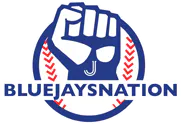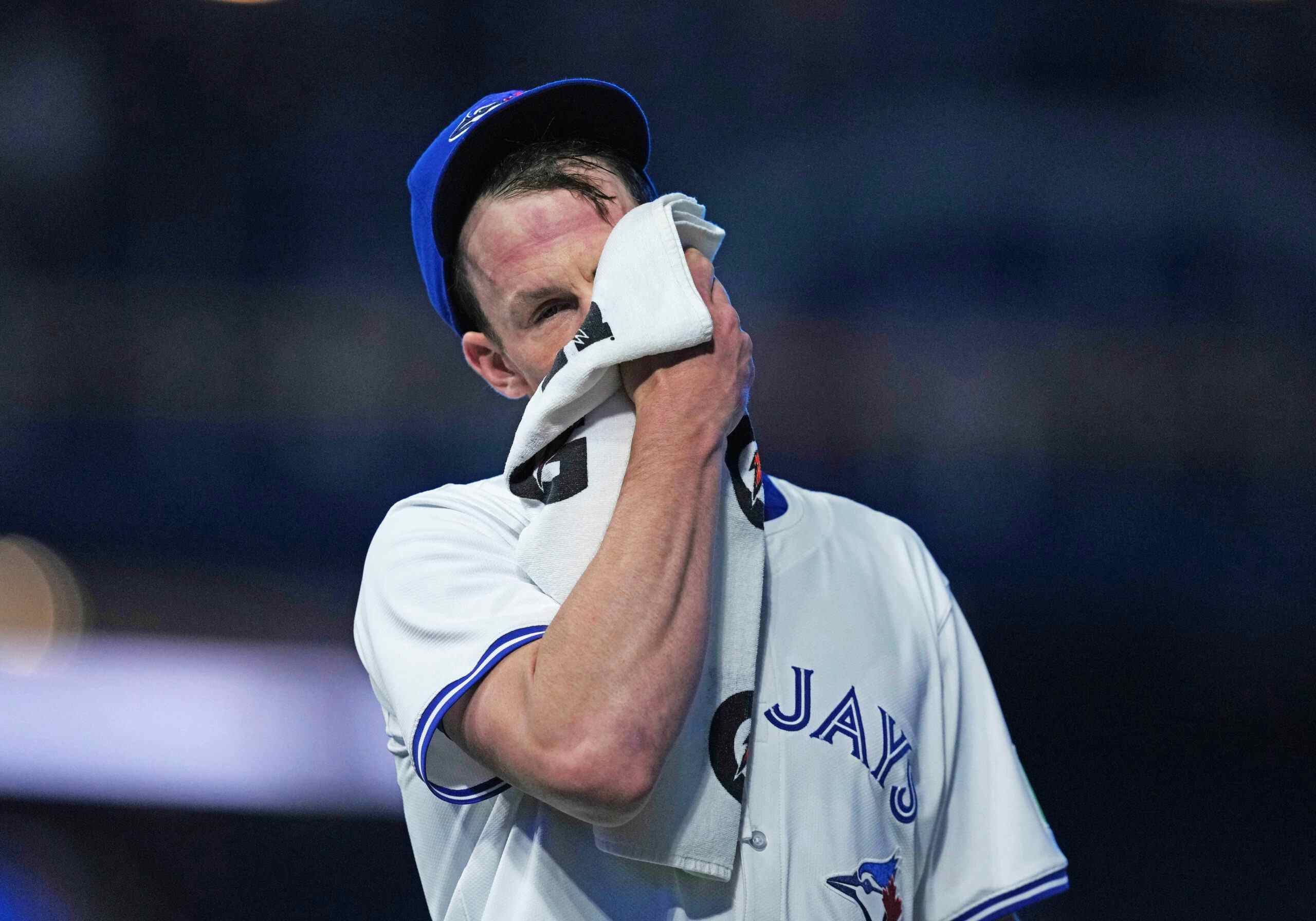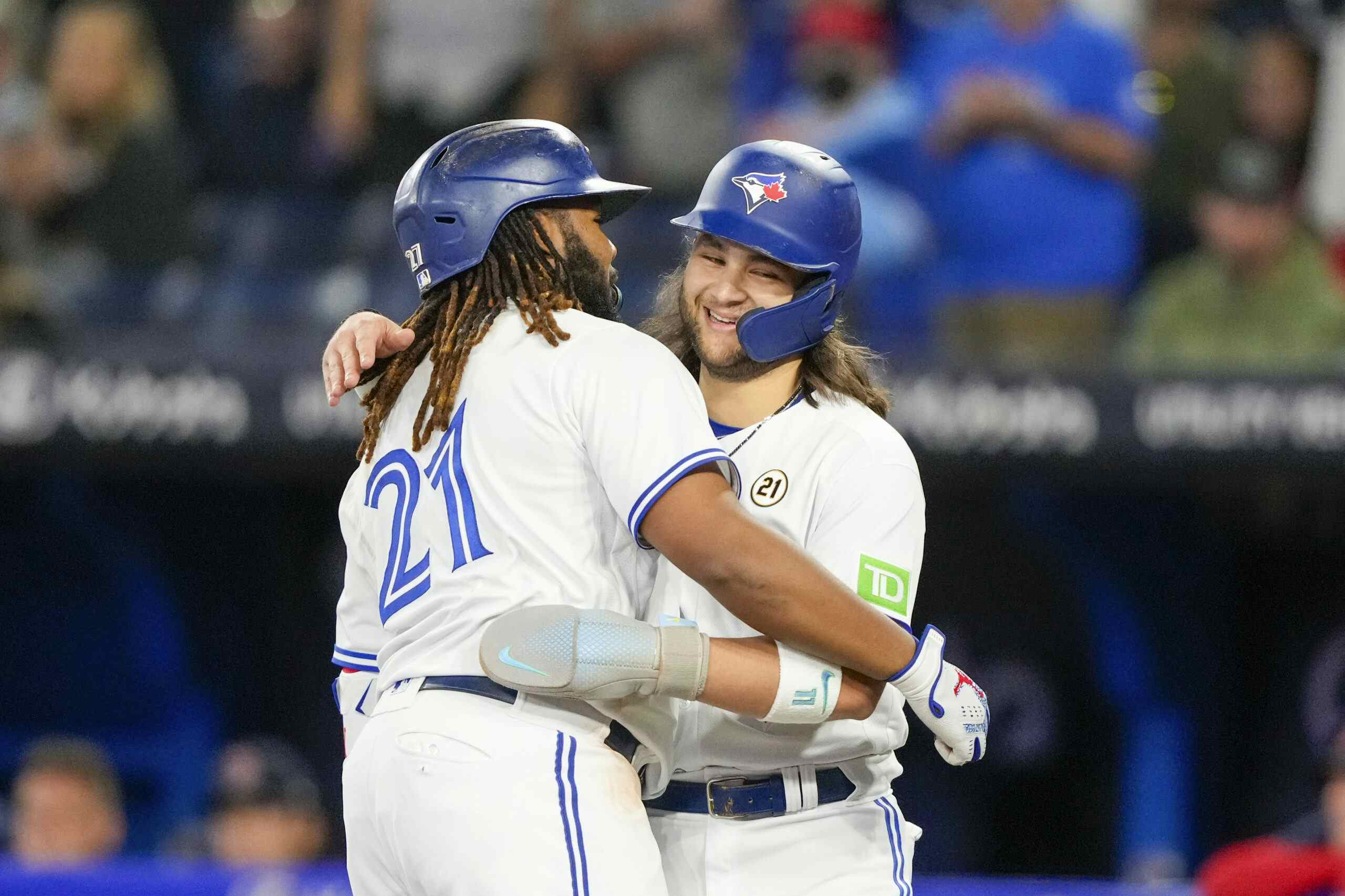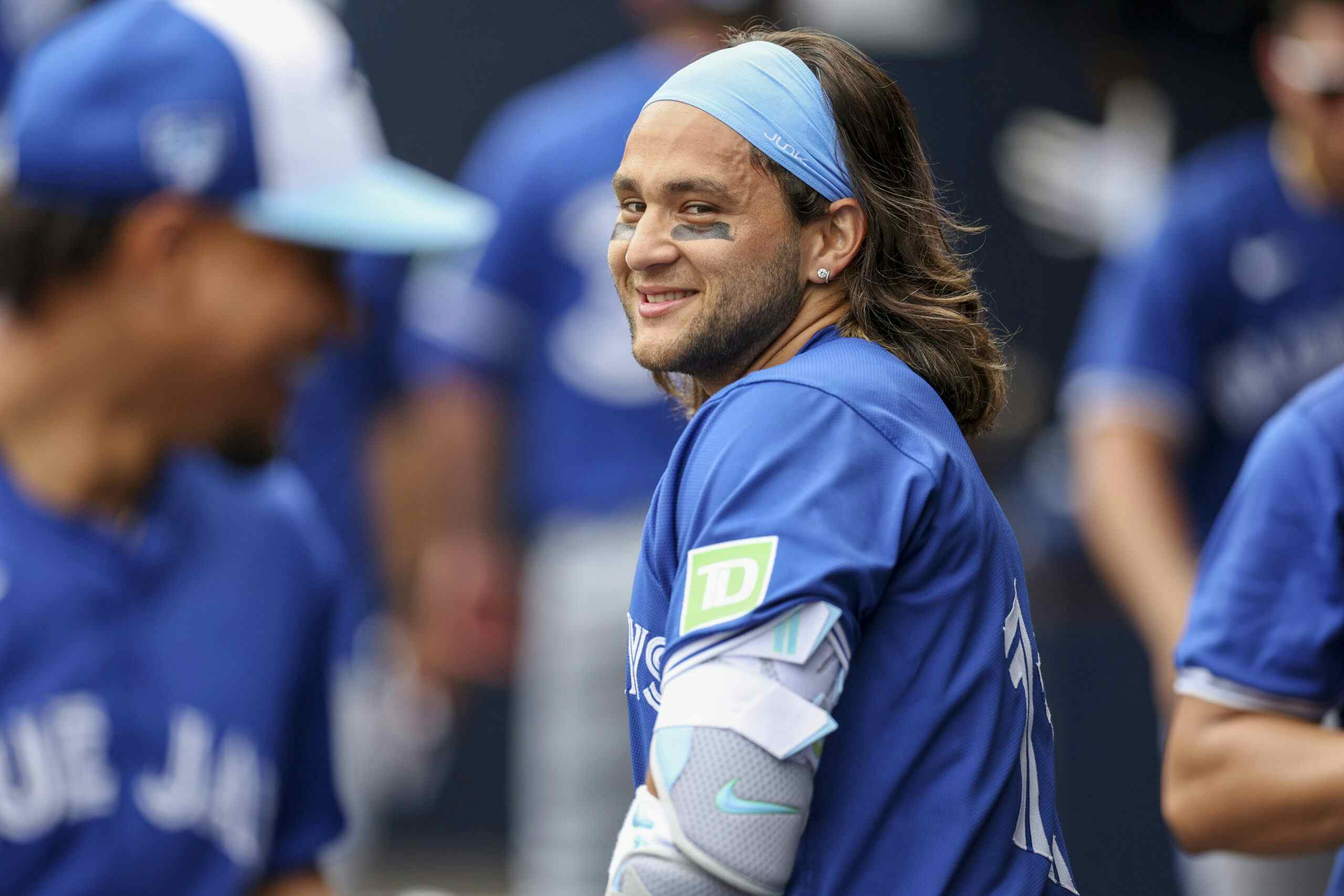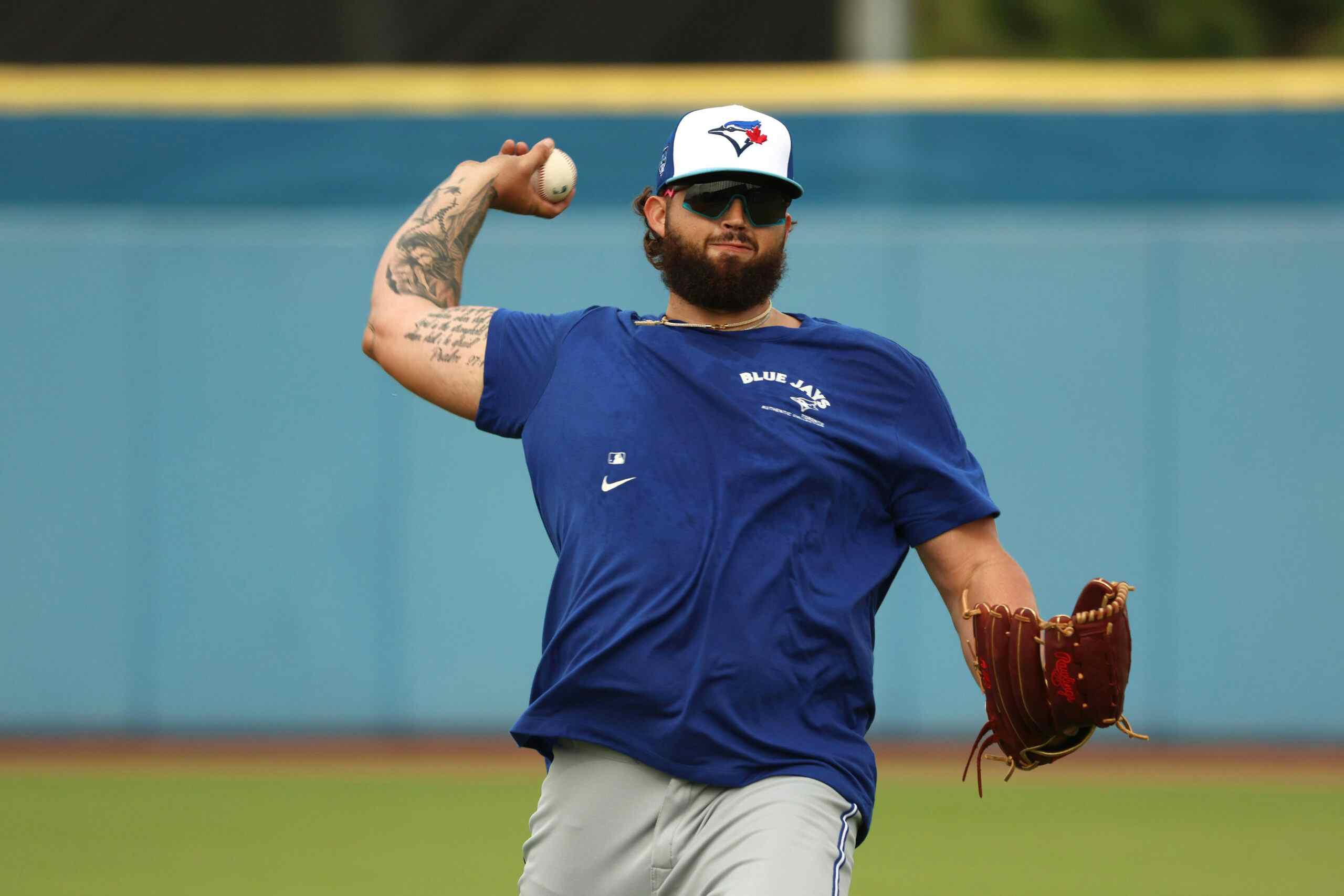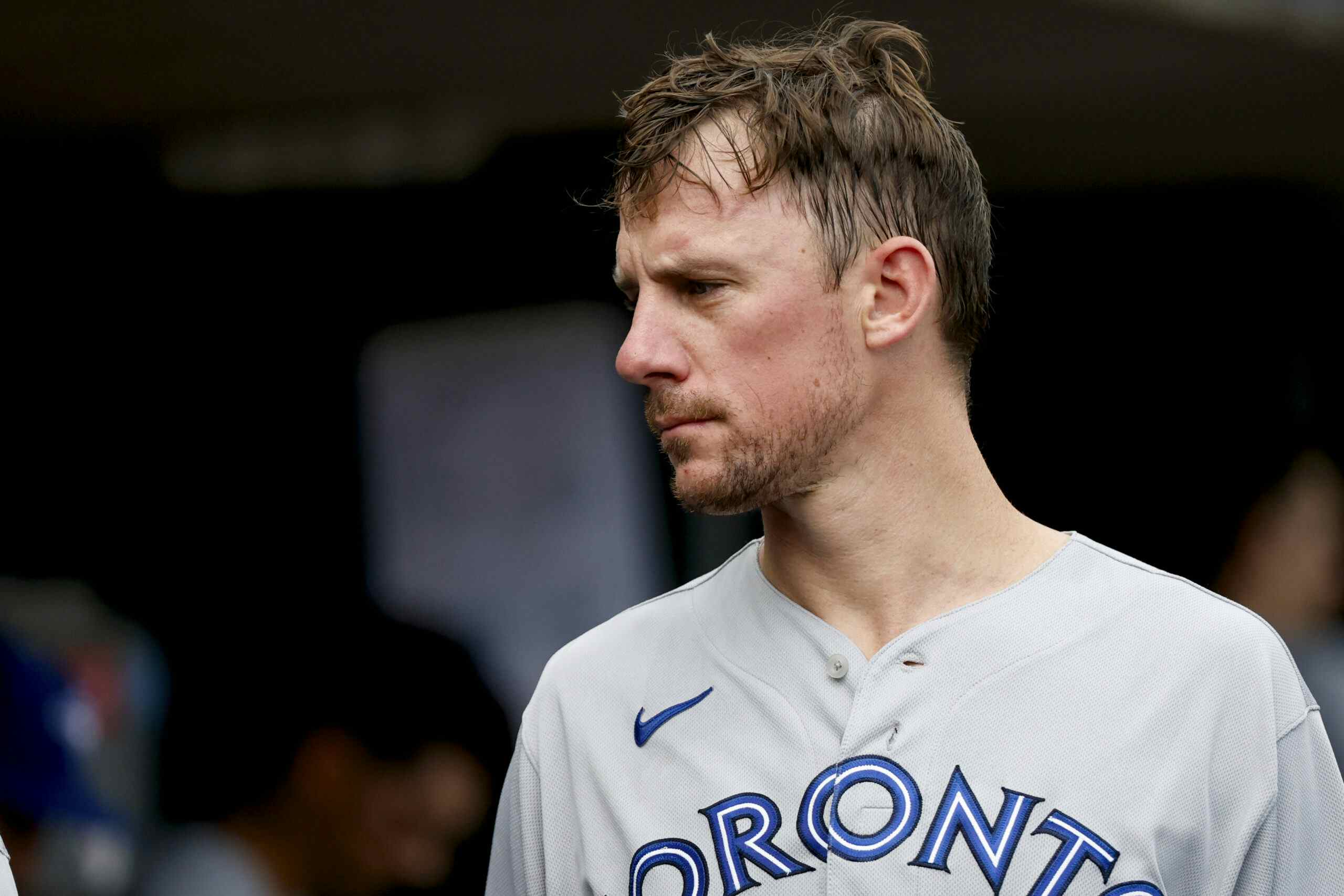Alex Anthopolous discusses the Troy Tulowitzki trade, Jose Reyes being a sunk cost, and intangibles
By Cam Lewis
4 years agoI’ve said it before and I’ll say it again — 2015 content doesn’t get old.
Scott MacArthur had Alex Anthopolous on his Morning Drive show on Thursday to re-live the earth-shattering acquisition of Troy Tulowitzki that he made ahead of the 2015 trade deadline. A handful of interesting things come up here, especially around just how poorly the organization viewed Jose Reyes’ ability as a player at the time and how highly AA has come to view intangibles in players.
On Jose Reyes being a sunk cost…
We had gotten to the point where, for us, Reyes had become a sunk cost. It was to the point where we felt it wasn’t going to be an option for us to continue to play him at shortstop. And that was going to be an issue, he was very well-liked in the clubhouse, putting him on the bench was not going to be an option.We had him through 2017, and I believe off the top of my head, Tulo had a total of five years left, Reyes had a total of two years left. But looking at Reyes as a sunk cost, we had the option to release the player, which wasn’t going to work from an accounting standpoint, if you release the player in that calendar year, whatever total dollars remaining would basically get accounted to that calendar year. Putting him on the bench for the next two and a half years would have been a problem as well, just from a culture and a morale standpoint.So we really viewed it as a sunk cost that it was ultimately starting to become dead dollars for us. So, in that respect, if that was the case with Reyes, Tulo, when you baked out the Reyes money, was basically like five [years] at $10 million a year. We thought if we had released Reyes we still needed to address shortstop going forward, would we give Tulo this deal? And we would at the time. That was why it was the first deal to go down for us. As much as we were trying to win that year, we knew that was going to be an issue going into 2016 as well. Our issues at shortstop weren’t going to go away in the 2015 off-season with Reyes.
This is probably the most interesting bit of information from the interview. AA mentioned off the hop that he had tried to acquire Tulowitzki from Colorado in the off-season heading into 2015 because the team was aware just how sharply Jose Reyes’ defence had declined.
Apparently, the concern with Reyes’ glove was so high that the organization even considered buying him out ahead of the season. The thing that stopped them, according to AA, was the fact that if they released him, the entirety of his contract would have counted against the books in 2015, which obviously wouldn’t have worked from a financial standpoint as he was owed more than $40 million at the time.
What this also tells us, coincidentally, is that the final years of Tulowitzki’s contract have already been paid out. He was bought out ahead of the 2019 season and would have gone against payroll in that year, meaning he isn’t costing the Blue Jays anything in 2020 and 2021, as we had previously assumed.
It’s easy to forget just how bad Reyes had been in 2015 before this deal was made. His defence was well noted, as AA specifically points out a game right before the All-Star break in which Reyes made two key errors at short in a close game against Kansas City, but even his bat had sharply declined. Reyes, at the time of the trade, was slashing a .285/.322/.385 line, striking out twice as much as he was walking.
On the impact that Troy Tuwlotzki had on the team…
There’s just a presence he had every day when he came into the clubhouse. There was just a respect level he had amongst the players. … I don’t want to over-dramatize it but he really brought an intangible component, just a presence when he came into the box and he stepped on the field. He got off to a pretty good start for us and, from a defensive standpoint, it was a big upgrade as well. The team just started rolling. We should have been rolling the entire year. Before that series we had played a bad series in Seattle, lost two out of three, weren’t makes good plays on the bases and so on, but the run differential of our team was so strong and we felt we really had an elite team and we just needed to tweak some things, especially on the defensive side.
There’s plenty of talk from AA in this interview about how great Tulo was, so I picked out this quote specifically because of how he illustrates how Tulo really was the game-changer for the team. Though Tulo was far from the dynamic player offensively that we had hoped he would be in that lineup, he was a rock defensively and his presence on the team completely changed the way players went about their business.
I know many dispute this, but I don’t think Toronto goes on the run that they do in 2015 without Tulo there. He didn’t make a single error in the 39 games he played at short after being acquired that year. For a team that booted so many games by just playing sloppy baseball, Tulo’s presence really was the key factor. Baseball is an incredibly mental sport. As AA points out, players started to take the games more seriously when Tulo arrived. Beyond the massive upgrade he had defensively at a key position, Tulo made the other players better.
On the intangible aspects that players bring…
Early on as a GM, numbers, tools, performance ruled the day, by a lot. I remember we had a lot of talented players in Toronto my first few years but we couldn’t get over the hump. We couldn’t win. I remember at the end of 2014, we ended the year against the Orioles, they won the AL East, and I remember sitting in one of the suites that they give the team and we’re sitting there and they’re celebrating on the field and they’ve got the flag going and fans are going crazy. At that moment, I just vowed to myself ‘one off-season, I’m going to try this one time because the other five years it hasn’t worked, we’re going to go out and get high-character, high-quality guys that make other guys around them better.’They have to be talented and be good players, of course, because you can get a bunch of good guys who aren’t talented and you’re not going to win. But we’re not going to take shortcuts, we’re not going to give a little bit or hold our nose and take more talented guys if they don’t bring what we want. Toughness, competitiveness, the desire and the hunger to win, making teammates better.I remember having a conversation with Mark Buehrle and basically telling him ‘I’m sick of this, I’m sick of the vibe in the clubhouse when you walk in.’ And you felt it as a GM when you came in. We started to make moves, we traded Gose to Detroit, we traded Lind to Milwaukee, we traded for Donaldson, we signed Martin, and I remember Buehrle sending me a text and said ‘man, this was not a joke, you were serious about really trying to change things.’There was just a totally different feel in our clubhouse, day in and day out. I used to think ‘yeah, you get a guy or two who’s a good teammate or good guy and it fits’ but it doesn’t work that way. One or two guys really can’t influence the group. To me, you need to have like 20 out of the 25 or now 26 if you’re really going to influence the entire group. In my experience, rather than getting a few, you need to not take shortcuts and get those kinds of players.
In the same vein, AA went on to talk about how important he now views the intangible aspects of players. At the beginning of his career as a GM, he viewed talent above all else, but, as time went along and his highly-skilled teams failed, he’s completely changed his tune to seek out players who bring more than just skill to the table.
It’s interesting that AA goes into quite a bit of depth on how important it was for him to acquire good guys to change the vibe in the clubhouse because a lot of fans have scoffed at Mark Shapiro for aiming to do the same thing with the organization. While there’s no doubt that you’ll never win with players who aren’t talented, there still are intangible benefits brought by players that have an overarching effect on the team’s success. Tulo is the perfect illustration of that, I find. He was like the glue for this incredibly talented but disjointed group the Jays had in 2015.
Recent articles from Cam Lewis
